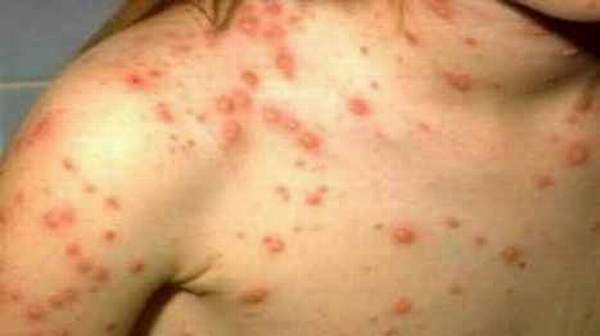What's in this article?
Murine typhus, also known as “endemic typhus,” “Mexican typhus,” and “flea-borne typhus,” is a flea-borne infection of humans worldwide. Symptoms are similar to those of epidemic typhus fever (transmitted by the human body louse), but typically much less severe. If untreated, patients with murine typhus can require hospitalization, but the case fatality rate is only about 2% in the U.S. However, travelers to Asia and African should note that the case fatality rate is thought to approach 70% in certain areas in which murine typhus occurs.
In the U.S., 20-80 cases of murine typhus are reported each year, but many more cases go undiagnosed. The vast majority of cases occur in Texas, but several are reported each year in California and Hawaii. The causative agent is a bacterium that exists primarily in rodents in urban areas. However, murine typhus also exists in rural areas in a transmission cycle that involves opossums, feral cats, feral dogs, and the cat flea Ctenocephalides felis.
Causes of Typhus
It is caused by the bacteria Rickettsia typhi, and is transmitted by the fleas that infest rats. While rat fleas are the most common vectors, cat fleas and mouse fleas are less common modes of transmission. These fleas are not affected by the infection. Human infection occurs because of flea-fecal contamination of the bites on human skin. Rats, cats, possums maintain the rickettsia colonization by providing it with a host for its entire life cycle. Rats can develop the infection, and help spread the infection to other fleas that infect them, and help multiply the number of infected fleas that can then infect humans.
Less often, endemic typhus is caused by Rickettsia felis and transmitted by fleas carried by cats or opossums.
In the United States of America, Murine typhus is found most commonly in southern California, Texas and Hawaii. In some studies, up to 13% of children were found to have serological evidence of infection.
Diagnosis of infection
- Difficult because initial symptoms are similar to several other diseases, including epidemic typhus fever.
- Serological tests are needed to confirm a diagnosis.
Treatment and Prognosis of Murine typhus
Endemic typhus is highly treatable with antibiotics. Most people recover fully, but death may occur in the elderly, severely disabled or patients with a depressed immune system. The most effective antibiotics include tetracycline and chloramphenicol.





